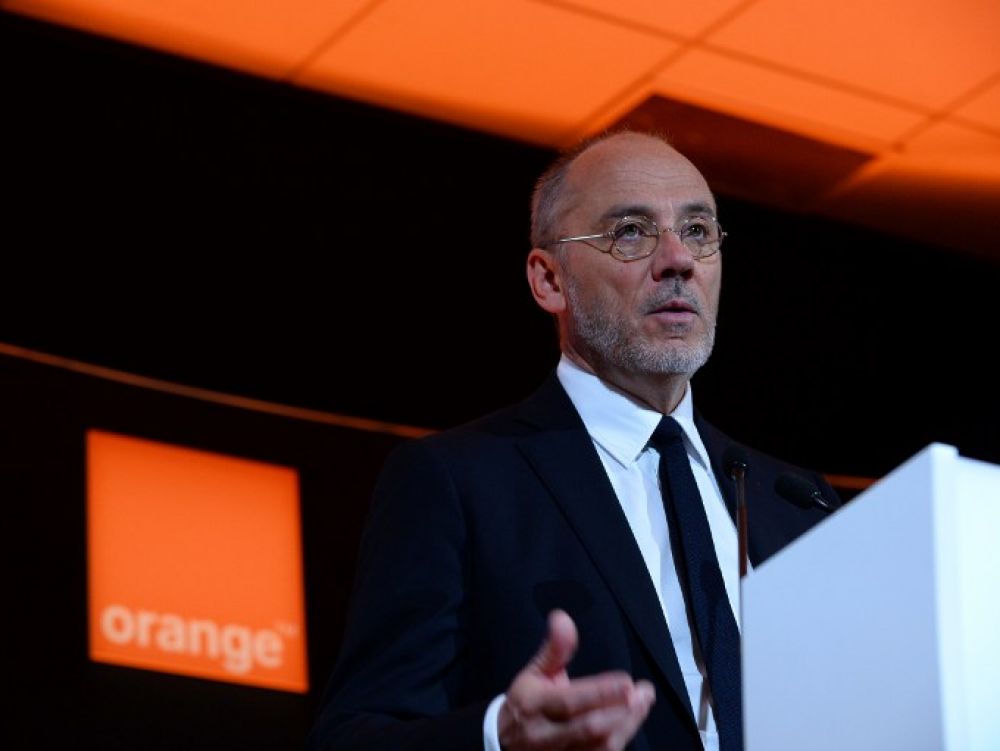Stiffer Competition as French Telecom Giant, Orange, Plots Entry into Nigeria, South Africa
One would have thought that two of Africa’s biggest telecoms markets, Nigeria and South Africa had reached saturation levels, with no room for new whosesale investors peeping in. But that may not be the case after all, as French telecoms giant Orange still believes that there are still portions of the big pies that can be shared profitably with existing competitors. This sums up the decision by the company with a huge presence across francophone African countries to venture into the two big markets according to a statement credited to its CEO, Stephane Richard, who said the company would make its move into Nigeria and South Africa in coming months.

Speaking on the plan, Mr. Richard said that “It could make sense to be in economies such as Nigeria and South Africa. If one considers there are things to do, the time frame I’m considering is rather a few months than a few years,” he said. Earlier in the year, Orange opened a regional headquarters for Africa and Middle East in Casablanca Morocco, signaling its interest to increase its presence in the region, particularly Africa. The telco has seen growth in its operation in the Middle East and it’s working to do the same in Africa, targeting the largest economies in the continent.
Orange has operations in 18 countries in the Middle East and Africa that have proved to be the fastest growing market in its grip. Revenues in the region have a record of 6.2% in the first quarter of 2020. Orange has recorded an average annual growth of 6% in the Middle East and Africa (MEA) region since 2015. For these reasons, the telco decided to give the region more autonomy to foster the growth.
Orange has continued to deploy the 4G technology in the MEA, reaching 26.5 million customers, 50.6% more than a year ago. However, its interest in South Africa and Nigeria poses concern on whether it could usurp the reign of existing telcos in the countries. MTN leads with the highest subscribers’ base in Nigeria and South Africa, while the others have over time amassed enormous numbers of subscribers. The number of GSM subscribers in Nigeria as of March 2020 stood at 188,989,051, according to data published by the Nigeria Communication Commission. Given a population of 203 million, Orange will find it difficult to disrupt the status quo as most Nigerians are already attached to existing telecom companies.
But Orange knows this, and has come with a plan. At the inauguration of the headquarters in Casablanca, Richard said the potential the telecom operator sees in the African telecom industry goes beyond voice calls and internet data. He said that mobile money is an example of digital transformation that needs to be developed in the African continent. “Orange is one of the rare international groups to have made the strategic choice, 20 years ago, to seek to develop in Africa and the Middle East. We have also always been convinced of the immense potential of this continent. In many ways, it can be seen as a model for digital transformation; mobile money is a great example of this.
“One of the key success factors behind new services is to develop them in Africa so that they are adapted to specific local requirements and so meet the needs of our customers. That is why we decided to organize the management of our business in Africa and the Middle East from within the region directly from the African continent,” he said. Orange has been investing $1.1 billion in the MEA yearly as part of its Engage 2025 plan. The Engage 2025 plan involves a multi-services strategy aimed at diversifying their operation to represent 20% of the business at the end of 2025. The company hopes to derive $1 billion in revenue while it works to develop its energy and e-health services.
However, financial services have become paramount in its strategy to penetrate more African markets. The telco is planning to introduce Orange Credit in every country of the MEA region where it is operational, and it hopes to use its banking system to facilitate Orange Money payment services. While the telecom industry appears to be all taken in Nigeria, the fintech industry is still open and offers amazing opportunities to operators who wish to offer financial services. MTN Nigeria happens to be the only telco in the country that has pushed itself to the limelight with its MoMo financial services. Airtel, Glo and 9mobile are struggling to find their footing, which leaves the sector ripe and open for Orange.Moreover, the number of unbanked and financially underserved people in Nigeria and the rest of the continent is economically viable for companies that want to pitch their trade in the fintech industry.
Kelechi Deca

Kelechi Deca has over two decades of media experience, he has traveled to over 77 countries reporting on multilateral development institutions, international business, trade, travels, culture, and diplomacy. He is also a petrol head with in-depth knowledge of automobiles and the auto industry



